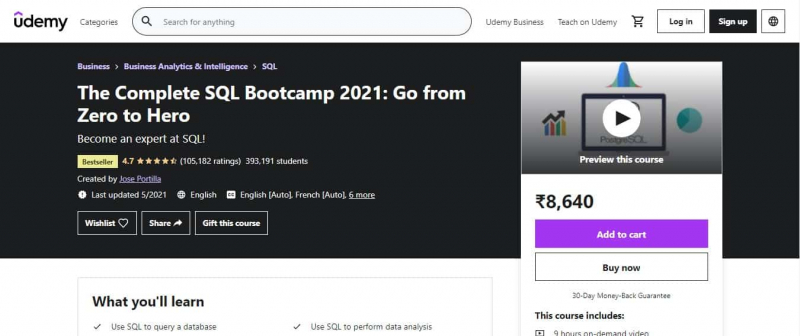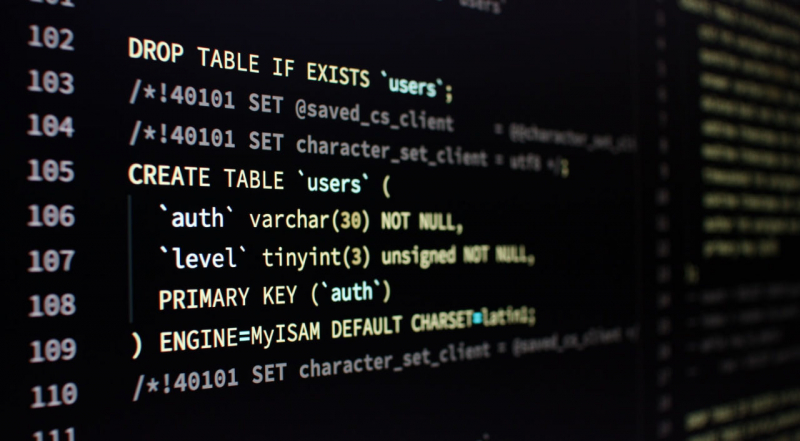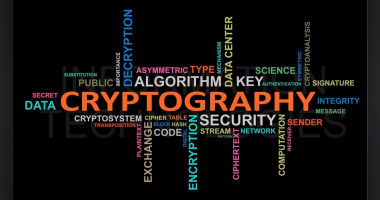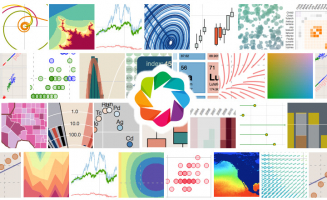Top 15 Best Online SQL Courses
SQL (Structured Query Language) is a computer language that is used to manage data in a relational database management system (RDBMS) or for stream processing ... read more...in a relational data stream management system (RDSMS). It's especially beneficial for dealing with structured data, or data that has relationships between entities and variables. To help you gain more understanding and knowledge in this field, Toplist has compiled the top best online SQL courses, hoping to help learners choose the right courses for themselves.
-
The most important query language you can learn is SQL! Many popular relational database management systems, such as MySQL and PostgreSQL, employ it. However, data analysis and big data frameworks and tools such as Apache Spark use it. As a result, learning SQL offers up a plethora of options and occupations - whether you want to work with relational databases or become a data scientist, knowing SQL is essential!
This course will teach you SQL from the bottom up in great detail! In addition, there are two main paths you can take with this course: The "Complete Course" option takes you step by step through the whole course, teaching you all of the major features and concepts you need to know. The "Quick Summary" approach will teach you the most important SQL concepts in just a few hours.
Both paths are included in this course (i.e. with a single purchase), and you can choose to study one or the other, depending on your needs. Simply go to the free introductory course section to discover everything there is to know about this course and these two paths (and how to take them).
Because SQL is a standardized language, you'll be able to use it in a variety of situations. Different database systems, on the other hand, support different features of SQL or provide their own SQL variants. As a result, this course delves into SQL by looking at all of its essential features using the two most common database systems, MySQL and PostgreSQL. All query and command examples are presented for both database systems, so you can work with SQL in either environment!
This course will teach you how to write your own SQL queries (simple or sophisticated), how to design basic and advanced databases and table structures, and how to interact with data of various shapes and complexity!What you will learn
- Understand the fundamental SQL concepts and syntax.
- Ability to install MySQL and PostgreSQL, as well as many clients
- CRUD (create, read, update, and delete) operations in SQL
- Data (simple and complicated) can be queried and filtered.
- Data should be normalized and spread over many tables.
- Perform data aggregation and merge processes.
Who this course is for
- Beginner SQL developers or data scientists
- (Web) developers who want to incorporate SQL into their applications
- Data analysts and scientists
Instructor: Maximilian Schwarzmüller
Udemy rate: 4.8/5.0 (723 ratings)
Enroll here: https://www.udemy.com/course/sql-the-complete-developers-guide-mysql-postgresql/

https://www.thetechnologybase.com/ 
http://ce.extension.msstate.edu/ -
This course will teach you how to use SQL fast and effectively. You'll learn how to use PostgreSQL to read and write complicated queries to a database, which is one of the most in-demand talents. These skills apply to any major SQL database, including MySQL, Microsoft SQL Server, Amazon Redshift, Oracle, and many others.
SQL is one of the most in-demand IT skills, thus learning it is one of the quickest methods to increase your employment prospects! This course will help you learn rapidly while also providing challenges and tests to help you improve your understanding!
In this course you will learn everything you need to become a SQL Pro! Including:
- Learn how to use PostgreSQL and PgAdmin, two of the most popular SQL tools in the world.
- Learn the fundamentals of SQL syntax.
- Using aggregate functions and GROUP BY commands to analyze data
- Using string operations and comparison operations to run sophisticated queries
- To add logic flow to your SQL queries, learn how to use logical operators.
- Learn how to use the most frequent SQL JOIN commands.
- Learn how to design tables and databases with data entry limitations.
- Learn how to utilize Python to improve your SQL skills.
Instead than watching someone else code, this course puts you in charge by having you build up and restore databases right at the start. Every segment has new challenge questions and assignments that are based on real-life tasks and scenarios. You'll begin with the fundamentals and quickly progress to advanced commands, dealing with timestamp data and variable character information like a pro. This is one of the best online SQL courses.
SQL is a highly sought-after expertise among business analysts, data scientists, and anyone else who works with data. By enrolling today, you can immediately improve your skill set and add SQL to your résumé.What you will learn
- Use SQL to query a database
- Use SQL to perform data analysis
- Be comfortable putting SQL and PostgreSQL on their resume
- Learn to perform GROUP BY statements
- Replicate real-world situations and query reports
Who this course is for
- Anyone interested in learning more about SQL, PostgreSQL, or basic data analysis!
Instructor: Jose Portilla
Udemy rate: 4.7/5.0 (136,133 ratings)
Enroll here: https://www.udemy.com/course/the-complete-sql-bootcamp/

https://studyber.com/ 
https://www.un.org/ -
SQL and MySQL are extremely strong tools for maintaining and analyzing relational databases, and they should be in the toolkit of every analyst and business intelligence practitioner.
In this course, you'll take on the role of a business owner who has recently purchased Maven Movies, a physical DVD rental store. Your aim is to learn everything you can about your new firm, including inventory, personnel, and customer behavior, using only a MySQL database and MySQL Workbench. This is one of the best online SQL courses.
But don't be concerned; you're not alone! From start to end, the teacher will be there to help you, providing crystal clear explanations, MySQL pro tips and best practices, and course exams, projects, and homework assignments to put your SQL and database analysis skills to the test.
NOTE: This course does not address the creation, modification, or maintenance of SQL/MySQL databases. The purpose is to use MySQL and MySQL Workbench to focus on data exploration and database analysis.What you will learn
- MySQL Workbench allows you to create SQL queries to explore and analyze databases.
- Learn how to rapidly and efficiently extract, sort, filter, and organize data with SQL.
- With MySQL, you may analyze data from numerous tables at once. JOIN CONNECTION STATEMENTS
- Solve real-world corporate use cases and practical assignments.
- Learn about one-of-a-kind advice, tools, and case studies you won't find anywhere else.
- Get INFINITE access to resource files, quizzes, assignments, and professional help for the rest of your life.
Who this course is for
- Excel users wishing to move into a broader business intelligence or database-focused career Analysts or BI experts looking to swiftly retrieve or evaluate data housed in relational database systems
- Anyone interested in learning one of the most widely used and powerful database programming languages in the world (SQL)
- Students interested in a hands-on, interactive introduction to MySQL for data analysis
- Anyone interested in a career in data analysis or business intelligence should attend.
- This is NOT a course for database administrators.
Instructor: Maven Analytics
Udemy rate: 4.7/5.0 (5,752 ratings)
Enroll here: https://www.udemy.com/course/mysql-for-data-analysis/

https://careertraining.ed2go.com/ 
https://anteelo.com/ -
This is the only online course that will teach you how to build a database, store complicated data, and optimize searches, as well as anything else you'll need to run a production, scalable database! This is one of the best online SQL courses.
Every app on the planet, whether it's a Flutter-based mobile app, a React-based web app, or a plain HTML page, needs to store data in a database. Although there are a variety of databases to choose from, PostgreSQL has been a top choice for decades because of its scalable performance, rock-solid uptime, and flexible design systems. This course will teach you what you need to know about PostgreSQL so you can utilize it on your next major project!
Do you have no prior experience with databases? It's no problem. This course begins with an introduction to SQL, the language that PostgreSQL interacts with. You'll gain practical, hands-on experience working with realistic datasets through an astonishing number of activities. With a series of sophisticated commands, you'll learn how to store, fetch, and update data.
After you've mastered the fundamentals, you'll move on to database design patterns, which provide various options for structuring your database for efficient data modeling. You'll examine a variety of scenarios using various sorts of data, as well as the benefits and drawbacks of various approaches.There are plenty of practice activities and quizzes in this course. You'll have quick practice with all of the new topics and features you've learned! Furthermore, you'll know when and how to apply each of these capabilities in real-world applications. You'll gain a behind-the-scenes insight at how PostgreSQL works, in addition to practical hands-on experience. When it comes to tweaking your queries for performance, this knowledge is priceless. You may plan on getting every last bit of performance out of your database if you have a natural instinct for how PostgreSQL operates.
What you will learn
- Understand the basics of relational databases.
- Learn the abilities you'll need to land a career as a database administrator (DBA) or database developer.
- Using the most up-to-date technologies, create quick and efficient databases.
- Many quizzes, projects, and built-in exercises can help you improve your skills.
- Become familiar with and implement a variety of database design patterns.
- Improve query read and write performance by optimizing queries.
- Recognize how PostgreSQL saves data at the hardware level.
- Using an API, connect PostgreSQL to front-end programs.
- Create standard app features like a "like" and "mention" mechanism.
- Handle concurrency and race circumstances that are sophisticated.
- Schema migrations can help you improve your database architectures.
- Learn how to speed up automated testing with PostgreSQL.
Who this course is for
- Any developers looking to understand databases
- Application engineers seeking to expand their backend skillset
Instructor: Stephen Grider
Udemy rate: 4.7/5.0 (4,093 ratings)
Enroll here: https://www.udemy.com/course/sql-and-postgresql/

https://123job.vn/ 
https://bootcamp.du.edu/ -
This is an advanced SQL course that expands on the abilities learned in our MySQL beginner courses. Before taking this course, please review the prerequisite skills or complete the beginning SQL course! You've come to the perfect place if you want to learn how to use advanced SQL to gain practical, real-world analytics and BI abilities.
This is one of the best online SQL courses. This course will be unlike anything you've ever seen before. You'll be working with a rich, custom-built eCommerce database that the authors constructed from the ground up to enable you apply your SQL abilities to real-world projects and learn how to genuinely THINK like an analyst, rather than using random sample data and obscure demos.
You'll take on the role of a recently hired Database Analyst at Maven Fuzzy Factory, an eCommerce start-up, and will work closely with the CEO, Marketing Director, and Website Manager to help the company grow and analyze performance. You'll learn how to use a variety of sophisticated SQL tools and techniques as well as work on real-world projects that data analysts and business intelligence professionals deal with on a daily basis.
Unlike other SQL courses, this one is specifically designed to improve your business intelligence and analytical thinking skills; as you complete course projects and exercises, you'll notice patterns and trends emerge in the data as a result of your findings. This course is required for anyone interested in pursuing a career in analytics.What you will learn
- MySQL Workbench allows you to create complex SQL queries to explore and analyze databases.
- Learn how to tackle difficult multi-step data problems with subqueries and temporary tables.
- Solve real-world eCommerce use cases and practical tasks.
- With MySQL, you may analyze data from numerous tables at once. JOIN CONNECTION STATEMENTS
- Learn one-of-a-kind techniques and tools that you won't find anyplace else.
- Get INFINITE access to resource files, quizzes, assignments, and professional help for the rest of your life.
Who this course is for
- Excel users wishing to move into a broader business intelligence or database-focused career Analysts or BI experts looking to swiftly retrieve or evaluate data housed in relational database systems
- SQL users who want to improve their skills and grasp one of the most popular and sophisticated database programming languages in the world
- Students who want to learn MySQL for data analysis and business intelligence in a hands-on, practical, and highly engaging method
- This course is NOT for database administrators who want to pursue a career in data analysis or business intelligence.
Instructor: John Pauler
Udemy rate: 4.7/5.0 (3,134 ratings)
Enroll here: https://www.udemy.com/course/advanced-sql-mysql-for-analytics-business-intelligence/

https://careertraining.ed2go.com/ 
https://www.onlinecoursereport.com/ -
Do you know the fundamentals of SQL but feel upset when you run across scenarios where the fundamentals aren't enough? Are you a junior analyst looking to move to advanced SQL so that you can grow in your career? Maybe you're a data scientist who understands just enough SQL to get by, but you'd like to improve your skills so you can spend less time wrangling data and more time constructing models.
If any of these scenarios sound familiar, you've come to the correct spot. This advanced SQL for data analysis course covers everything that beginner SQL courses don't. The program is in-depth, covering all of the advanced techniques you'll ever need to manage and analyze data in the quickest and most effective manner. These concepts aren't taught in isolation; instead, they're taught in the context of real-world analytics settings, ensuring that you'll be ready to apply them on the job right away.
There are three features that distinguish this course from others. The first is the scope of the project. This course delves into SQL's advanced toolkit, revealing strategies for solving challenges that have even the most seasoned analysts scratching their heads. Second, there is an unwavering focus on practical, real-world applications. Techniques are taught as answers to common data wrangling and analytics problems, rather than as abstract concepts. Finally, and most significantly, the course includes a plethora of coding activities that allow you to get plenty of practice. And these tasks are spread out throughout the course, rather than being clumped together after hours of watching videos.
So if you want to go from SQL apprentice to SQL master, enroll today.
What you will learn
- SQL Server and SQL Server Management Studio Window Functions Installation
- Subquestions that are relevant
- EXISTS and NOT EXISTS advanced filtering
- Using PIVOT to flatten data
- Using recursive CTEs to create data series
- Breaking down complex processes into manageable parts using CTEs and temporary tables
- DDL and DML instructions are used to define and manipulate tables.
- Designing lookup tables to reduce the amount of time spent on redundant analyses
- Indexes and other SQL optimization approaches
- Variables and IF statements are procedural programming approaches.
- Creating custom SQL functions
- Developing stored methods to allow for flexible and reproducible analysis
- Procedural programming techniques like variables and IF statements can help you improve your SQL understanding.
- With Dynamic SQL, you can create code that writes code.
Who this course is for
- Data Analysts or BI Professionals who wish to advance to Senior Analyst/Developer Data Scientists who want to differentiate themselves from their rivals by going beyond the basics in SQL
- Job hunters with extensive SQL abilities who wish to boost their resumes
- Students who want to learn SQL in a thorough but practical method
- Anyone interested in honing their SQL data analysis skills to the next level.
Instructor: Travis Cuzick
Udemy rate: 4.7/5.0 (796 ratings)
Enroll here: https://www.udemy.com/course/advanced-sql-server-masterclass-for-data-analysis/

https://careertraining.ed2go.com/ 
https://www.seek.com.au/ -
According to Indeed data, SQL has been one of the most prevalent skill sets demanded by companies for software developers for years. That fact is unlikely to alter anytime soon, as companies have realized that the data they collect, generate, and store has significant business value in terms of improving performance and efficiency, as well as uncovering new growth opportunities.
If you're a new software developer, a Business Analyst, a Test Engineer, a Project Manager wishing to expand your technical skill set, or a data or financial analyst that works largely with spreadsheets, this course will help you learn how to improve your data skills. This course will teach you all you need to know about relational databases, including how to create and build a database structure, how to get data into your database, and how to use SQL to get useful insights.
This is a really hands-on course! It's organized as a series of lectures to help you comprehend what we'll be doing, with labs, activities, and quizzes sprinkled throughout to keep you engaged from the beginning.What you will learn
- A Relational Database (RDBMS) is a type of database that stores data in a
- On your local PC, how to install Microsoft SQL Server and SQL Server Management Studio
- How to create, examine, and query a database with SQL Server Management Studio.
- How to use the online documentation to explore SQL Server features
- Database Design Techniques, including how to use an Entity Relationship Diagram to diagram a database (ERD)
- Tables, columns, data types, primary keys, and foreign key connections are the most basic database structures.
- The best standards for naming database items (objects)
- SQL Server Management Studio may help you learn SQL by automatically producing queries and SQL statements.
- Using the INSERT statement to insert data into tables
- SELECT statements and WHERE clauses are used to retrieve and filter data.
- INNER JOIN, LEFT JOIN, RIGHT JOIN, FULL JOIN, and CROSS JOIN commands are used to extract data from many tables in a single query.
- Sorting the results of the query
- Aggregating data using aggregate methods like SUM and COUNT, as well as GROUP BY clauses (essential for r
- porting and data summarization!)
- UPDATE and DELETE commands are used to update and delete data.
Who this course is for
- Beginner programmers who need to use SQL in their code
- Business analysts, project managers, and test engineers/analysts who desire to develop their careers.
- Data and financial analysts who seek to improve their game by using SQL databases
- Anyone interested in data analytics, data science, or software development as a job
Instructor: David Medlock
Udemy rate: 4.7/5.0 (207 ratings)
Enroll here: https://www.udemy.com/course/introduction-to-sql-databases-data-dweeb-chronicles-vol-1/

https://www.skuad.io/ 
https://insights.dice.com/ -
You'll need the right data to make informed business decisions. You'll need to interface with and query data from a database to receive the right information. This is when SQL enters the picture. Structured Query Language (SQL) is an acronym for Structured Query Language. It's the language that a database uses to communicate with it, as well as the data that's needed to make informed decisions that save time and money.
This SQL course begins with the fundamental building blocks required to properly interface with any database. You'll learn how to use MySQL to query and manage a database. Many of the world's major enterprises utilize MySQL, a free open-source relational database management system (RDBMS).
Each segment of the course will cover a different aspect of SQL. You can follow along with the lecturer as he demonstrates each idea in the video lectures. You can test your learning with a section quiz and activity at the end of each lesson. When you finish one section, you'll go on to the next, which will build on the previous section's themes. This helps you learn more by allowing you to build on what you've learned as you progress from one part to the next.
This isn't a course where you just sit back and watch the instructor type on the screen. The lectures and course flow have been created to encourage you to join in the discussion by writing your own SQL. True learning takes place when you put what you've learned into practice.
The course also includes downloadable tools that you may utilize as you continue to learn SQL outside of the classroom. The course's QA board allows you to ask questions and receive answers from the instructor, as well as engage with the other students enrolled in the course.What you will learn
- SQL allows you to manage and interact with large data volumes.
- Provide information so that top meeting questions can be answered.
- Make a MySQL Database and Manage It
- Using Table Joins, Create Complex SQL Queries
- Using a SQL WHERE Clause with Criteria, retrieve accurate data from a database
Who this course is for
- Any Data User that wants to learn how to communicate with a database using SQL
Instructor: Kyle Pew
Udemy rate: 4.7/5.0 (561 ratings)
Enroll here: https://www.udemy.com/course/sql-introduction-to-mysql/

https://coderslink.com/ 
https://andreilungu.com/ -
This course - The Ultimate MySQL Bootcamp: Go from SQL Beginner to Expert - is for you if you want to learn how to gain insights from data but are too overwhelmed by databases to know where to begin. This course provides a moderate but thorough introduction to MySQL, one of the most in-demand business skills today.
Mastering MySQL is essential for answering difficult business challenges and inquiries utilizing data insights, whether you work in sales or marketing, operate your own firm, or want to build your own apps. The Ultimate MySQL Bootcamp teaches you how to build a solid database foundation in a fun and educational way. Yes, you read that correctly: you can create an engaging database course.
This course is also jam-packed with exercises, challenges, projects, and opportunities to put what you've learned into practice. Apply what you've learned to real-world problems like recognizing a website's key users, estimating your top students, identifying bots on a site, or figuring out which hashtags get the most traction.
This course combines the finest of my offline classes with the flexibility of learning online at your own pace. You will be able to interface with and query any SQL database after completing this course. You'll also be able to easily generate reports, use data to answer queries about corporate performance, and integrate MySQL into whole apps.What you will learn
- Make your own database or interact with one that already exists.
- Create SQL queries that span many tables.
- Create a web application with NodeJS and MySQL.
- SQL can be used to model real-world data and generate reports.
- Data can be used to answer queries about company performance or sales.
Who this course is for
- Anyone who wants to study SQL to improve their existing job or find a new one. One of the most in-demand talents nowadays is SQL.
- Anyone who wants to use data to solve challenging business challenges and generate reports
- Business owners, salespeople, and marketing professionals who want to learn more about their company's data.
- Developers who want to use MySQL to create apps (e.g., a social network or an ecommerce site).
Requirements
- No prior database, SQL, or MySQL knowledge is required! Complete MySQL newbies are welcome to attend.
- For this course, all you need is a working computer; PC, Mac, and Linux users are all welcome.
- There is no need to have any prior programming language knowledge.
Instructor: Colt Steele
Udemy rate: 4.6/5.0 (69,286 ratings)
Enroll here: https://www.udemy.com/course/the-ultimate-mysql-bootcamp-go-from-sql-beginner-to-expert/

https://aut-valley.com/ 
https://www.itpro.com/ -
Prepare to learn some really marketable programming abilities! You can't call yourself a full-fledged end-to-end developer unless you've mastered SQL. Today, data is the hottest topic in technology, and data is a company's most valuable asset. To store and retrieve data, all databases use the SQL programming language. Junior SQL Developers can expect to earn between $70,000 and $90,000 per year! The best part is that you don't need any prior programming knowledge to take this course.
SQL is a unique language, and this course will demystify it from the ground up, providing you with plenty of progressively difficult projects so that by the end of the course (in two months), you'll be able to proclaim yourself an Oracle SQL Master! Oracle is the world's most popular relational database! In just one month of study and practice, this course will have you job-ready.
The lectures contain all exercises and solutions. Learners have to pause the video and complete the task before returning to watch the solution in multiple sessions. This is an Udemy best-selling course, with over 134,000 enrolled students and a 4.6 star rating.What you will learn
- Become Job Ready to Start Contributing as a Database Developer Day 1
- Program in the SQL Language to Solve a Variety of Database Problems
- Code along with me to PRACTICE and IMPLEMENT everything you learn
- Become a SQL Ninja and Understand How the Oracle Database Works
- MASTER the Content Required to Pass the Oracle 1Z0-071 Database SQL Exam
- Obtain the Skills that are Necessary to Land a Job as a SQL Developer
- Have the Ability to Solve any SQL Problem
Who this course is for
- Anyone interested in pursuing a career in software development
- Anyone interested in learning SQL and landing a high-paying job as an Oracle SQL Developer
- Anyone interested in putting in the effort to grasp the SQL language
- Anyone interested in passing the Oracle 1Z0-071 exam!
Instructor: Imtiaz Ahmad
Udemy rate: 4.6/5.0 (35,089 ratings)
Enroll here: https://www.udemy.com/course/the-complete-oracle-sql-certification-course/

https://dev.to/ 
https://techbootcamps.utexas.edu/ -
This is one of the best online SQL courses. This course will teach you how to write SQL queries like a pro. You'll learn how to extract vital information from data stored in a database. Over 100 puzzles with in-depth solutions are strewn throughout the course, giving you lots of opportunities to practice. You'll never be afraid to look at a lengthy SQL query again after completing the course and all of the assignments.
The teachers, like the other courses, follow the no-student-left-behind concept, which means they start at the beginning. There are no prerequisites for taking this course. This course will take you step by step through advanced querying techniques including as subqueries, aggregations, joins, rollups and cubes, window functions, transposing and rating data, and using conditional expressions in new and intriguing ways.
You won't find a better place to learn SQL for Data Science than here, with over 43,000 students and a 4.6 rating.
What you will learn
- To query the database and obtain vital insight into data, write complicated SQL statements.
- Working Through 100+ Puzzles will help you practice every step of the way (with solutions)
- Transition from the very basics to being able to work with large SQL queries with ease.
- Improve Your Querying Skills by Learning Advanced Querying Techniques
- Become a SQL Developer Master
Who this course is for
- Anyone interested in becoming a data analyst or data scientist.
- Anyone who wants to learn how to write SQL queries
Instructor: Imtiaz Ahmad
Udemy rate: 4.6/5.0 (10,342 ratings)
Enroll here: https://www.udemy.com/course/master-sql-for-data-science/

https://terminaltrendsecurity.org/ 
https://dev.to/ -
Have you heard that database knowledge and skills are necessary for developers to have? Do you want to learn more about SQL and databases in general but aren't sure where to begin? Maybe you've been looking for a decent location to learn about Database Design and/or Data Analysis, but haven't been able to find one. Perhaps you're a developer who wants to expand your job opportunities by learning SQL and MySQL, one of the most popular databases on the planet.
Whatever brought you here, this training will help you...
- Understanding and applying SQL with MySQL, including Database Design and Data Analysis, will be a breeze.
- It is critical for developers to have database capabilities in order to prevent falling behind and to maximize work and consultancy prospects.
- In this course, you will study and practice key topics.
- SQL (Structured Query (Structured Query Language - very much an in-demand technology).
- MySQL is a database management system (one of the worlds most popular and widely used databases).
- Data Analysis and Database Design
Using the techniques covered in the database design section, you will create an example database for a movie online booking system throughout the course. There are other installation videos for MySQL for Windows, Mac, and Linux. The course not only teaches SQL, but it also includes several exercises with video solutions to help you better understand the topic.
To become a database developer, you must first learn SQL, then a database, and finally database design. This will almost always necessitate numerous classes. All of those topics, as well as data analysis, are covered in this single course.
You will have the ability to successfully utilize SQL, have a solid understanding of MySQL, and be adept in database design after completing this course. The sooner you enroll in this course, the sooner you'll have the skills and information you'll need to advance your employment or consulting prospects.What you will learn
- Have a thorough understanding and knowledge of MySQL, one of the most extensively used databases on the planet.
- Students who have learned SQL and MySQL can apply for careers in the IT industry.
- Students will have an advantage over other applicants if they have a thorough understanding of database design.
Who this course is for
- Anyone who wants to learn how to use SQL and MySQL.
Instructor: Jon Avis
Udemy rate: 4.5/5.0 (33,290 ratings)
Enroll here: https://www.udemy.com/course/sql-for-beginners-course/

https://www.roberthalf.com/ 
https://www.thebalancecareers.com/ -
This is a comprehensive SQL education that can be completed over the course of a weekend. In every company, SQL is the most in-demand expertise for data analysis roles. Skills in PostgreSQL and mySQL are in high demand for database management and data analysis positions. Whether you want to become a data scientist or simply improve your data analysis skills, this course - SQL Masterclass: SQL for Data Analytics - will teach you everything you need to know.
Abhishek and Pukhraj are the instructors for this training. For more than a decade, the course's instructors have been teaching Data Science and Machine Learning. They are well-versed in advanced SQL, PostgreSQL, mySQL, database management, and a variety of data analysis tools on the market. They're also the brains behind some of the most popular online courses, with over 150,000 students and thousands of 5-star evaluations.
Each lecture comes with a practice sheet to help you keep track of what you're learning. You can also test your grasp of concepts by taking quizzes. Each segment includes a practice assignment to help you put what you've learned into practice. You can also review your performance by looking at the solution to the assignment. Your confidence with SQL will skyrocket at the end of this course. As a career option, you'll have a good understanding of how to use SQL for data analytics.The teachers have designed a series of succinct and comprehensive films that will teach you all of the SQL abilities you'll need in your professional career. Exercises are included in this course to supplement the learning from the lecture videos. These tasks have been carefully created to further clarify the concepts and assist you in applying them to real-world challenges. By running your code and studying the output, you may see if you've grasped the ideas. If you're having trouble, post a question in the discussion board.
What you will learn
- All of the necessary SQL commands are known.
- Learn how to use SQL features such as GROUP BY, JOINS, and Subqueries.
- Master SQL's most popular string, mathematical, and date-time functions by learning how to use sorting and filtering commands.
- Use Views and Indexes to improve the performance of your database.
- Learn the best strategies for writing SQL queries to increase your efficiency.
- Relevant theoretical topics are also discussed so that you can succeed in business intelligence. Vivas and job interviews
- SQL knowledge is essential.
Who this course is for
- Working professionals who are just starting out on their data journey
- Anyone who wants to learn SQL from the ground up in a short period of time.
- Students getting ready to start their first corporate job
Instructor: Start-Tech Academy
Udemy rate: 4.5/5.0 (10,042 ratings)
Enroll here: https://www.udemy.com/course/the-complete-sql-masterclass-for-data-analytics/

https://www.michaelpage.com.hk/ 
https://tms-outsource.com/ -
Do you want to master a skill that will enable you to make almost $100,000 each year? If that's the case, this is the course for you! This is one of the best online SQL courses.
The language is used to connect with databases that hold data is SQL (Structured Query Language). This enables us to obtain data quickly and easily. Businesses will require more personnel to learn SQL as words like business intelligence and big data become increasingly common.
This course will show you how to use the SQL language in Microsoft SQL Server, one of the world's most used database engines. The majority of the subject will be taught to you through video courses. Practice problems or supplemental e-books are included in each session to assist you remember what you learned in the video tutorials.
What you will learn
- Complete the SELECT statements in their entirety.
- Fill in the blanks with basic SELECT statements. using a single table as a query
- Use the WHERE clause to filter data.
- The ORDER BY clause is used to sort data.
- Learn how to construct a database and how to normalize it.
- Return columns from many tables in the same query by using joins.
- Learn the distinctions between the INNER JOIN, LEFT/RIGHT OUTER JOIN, and FULL OUTER JOIN.
- SQL statements that use aggregate functions in their entirety
- Using the GROUP BY clause, you can group data together.
- Using the HAVING clause, filter data into groups.
- Use SQL Server's built-in functions.
- Data Types in SQL Server and Type Casting are both important concepts to grasp.
- Table Expressions in Action: Derived Tables and CTEs
- Make use of CASE Statements.
- Subqueries should be used.
Who this course is for
- Anyone that handles data, tables, or databases!
- Anyone interested in learning the fundamentals of big data and data analytics.
- Those who operate in companies that use Microsoft databases on a regular basis. This course employs Microsoft SQL Server and the T-SQL (Microsoft SQL) SQL dialect. This training may not be as useful to those who deal with Oracle, DB2, or MySQL.
- If you work in any of the following fields: marketing, finance, accounting, operations, sales, manufacturing, healthcare, financial services, or any other business or function that collects data,
- Someone who wants to gain abilities that will allow them to earn in the six-figure range!
Instructor: Brewster Knowlton
Udemy rate: 4.5/5.0 (5,626 ratings)
Enroll here: https://www.udemy.com/course/microsoft-sql-from-a-to-z/

https://www.dreamstime.com/ 
https://www.dreamstime.com/ -
In a relational database, you'll learn how to understand and write complicated SQL queries (SQL Server). The skills you'll acquire can be applied to a variety of other major database systems, including MySQL, PostgreSQL, Oracle Database, and others.
One of the quickest methods to achieve your job goals is to learn how to write SQL. This is due to the fact that SQL is one of the most in-demand talents in the computer industry. SQL may appear straightforward at first, but it can soon become complex. People frequently construct SQL queries without understanding they are returning an inaccurate result. This course has been prepared with accuracy and comprehension in mind. You'll discover how to prevent the most common errors people make when programming SQL. Not only that, but by watching how queries work step-by-step, you'll gain a visual guide to the SQL language. This is a comprehensive course that covers all of the essential skills for mastering the SQL language.
Over 80 code challenges are included in this course, in which you will write SQL queries and build database objects. These problems are based on real-life circumstances and are designed to help you comprehend them better.This is a course that puts you in command. Instead of watching someone else code, you get to write SQL throughout the course. Every segment contains new challenges that are based on real-world tasks and situations. This thorough course provides you with the opportunity to learn at your own pace in an interactive setting. You'll start with the fundamentals and work your way up to sophisticated SQL queries.
What you will learn
- How to create precise SQL queries for a database
- To undertake data analysis, use SQL.
- Learn how to use GROUP BY statements in Excel.
- Learn how to connect many tables together, including how to perform sophisticated joins.
- Learn about window functions, correlated subqueries, set operators, and CTEs, among other things.
- SQL best practices
- Recreate real-life scenarios and run reports
- What are the steps for creating tables, views, and stored procedures?
- How to make your queries sargable to make them perform quicker
- Be confident in your ability to list SQL and SQL Server on your CV.
Who this course is for
- Anyone who wants to study SQL or do data analysis!
- Those who want to learn more about SQL Server. This course employs Microsoft SQL Server and the T-SQL (Microsoft SQL) SQL dialect.
- If you work in any of the following industries/functions that gather data: marketing, finance, local government, accounting, operations, sales, manufacturing, healthcare, financial services, or any other industry/function that collects data
- Someone who desires to develop skills that would enable them to earn a good living and have a fulfilling career.
Instructor: Daniel Tait
Udemy rate: 4.5/5.0 (428 ratings)
Enroll here: https://www.udemy.com/course/the-complete-sql-course-2021-learn-by-doing/

https://www.wise.jobs/ 
https://www.crushpixel.com/




































